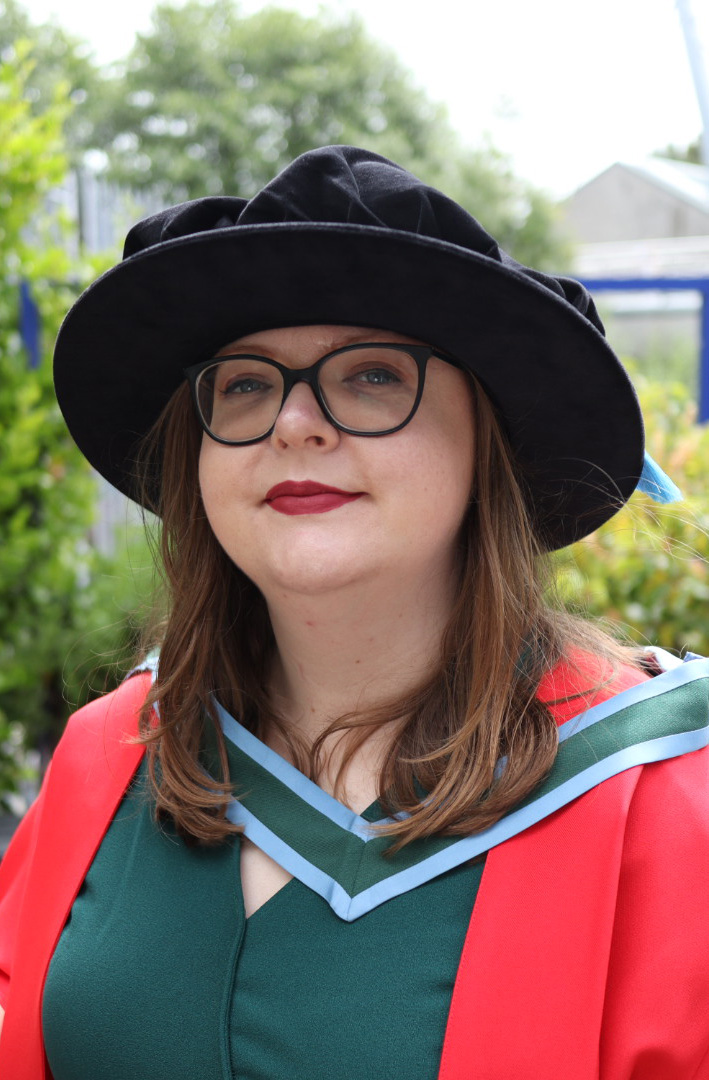-
Courses

Courses
Choosing a course is one of the most important decisions you'll ever make! View our courses and see what our students and lecturers have to say about the courses you are interested in at the links below.
-
University Life

University Life
Each year more than 4,000 choose University of Galway as their University of choice. Find out what life at University of Galway is all about here.
-
About University of Galway

About University of Galway
Since 1845, University of Galway has been sharing the highest quality teaching and research with Ireland and the world. Find out what makes our University so special – from our distinguished history to the latest news and campus developments.
-
Colleges & Schools

Colleges & Schools
University of Galway has earned international recognition as a research-led university with a commitment to top quality teaching across a range of key areas of expertise.
-
Research & Innovation

Research & Innovation
University of Galway’s vibrant research community take on some of the most pressing challenges of our times.
-
Business & Industry

Guiding Breakthrough Research at University of Galway
We explore and facilitate commercial opportunities for the research community at University of Galway, as well as facilitating industry partnership.
-
Alumni & Friends

Alumni & Friends
There are 128,000 University of Galway alumni worldwide. Stay connected to your alumni community! Join our social networks and update your details online.
-
Community Engagement

Community Engagement
At University of Galway, we believe that the best learning takes place when you apply what you learn in a real world context. That's why many of our courses include work placements or community projects.
PhD
PhD program at the Centre for Astronomy
Embarking on the journey to obtain a PhD in astrophysics is a serious commitment. This is the premiere way to get into professional astrophysical research as a career. Outside of an academic career, graduates with a PhD in astrophysics are highly regarded as problem solvers, data analysts and IT specialists, which opens a wide variety of lucrative career options in the industrial sector.
The PhD program takes typically 4 years. During these years you will be guided by a staff member of the Centre for Astronomy. The goal of the program is that by the end of the 4 years you are a capable independent researcher. During the program you will learn how to conduct scientific research from the idea for a project all the way to the publication of the results in international scientific journals. You will attend national and international conferences and learn how to communicate your research results to a specialist and non-specialist audience. You will also be involved in teaching and student supervision (with extra remuneration).
The prerequisite for entering the PhD program at the Centre for Astronomy is a completed undergraduate degree in Physics (for example or own Physics program at the University of Galway) or Astronomy, typically with a final grade of at least 2.1 in the Irish system (or equivalent for international applicants). Alternatively a completed Masters degree in Physics or Astronomy (for example our own Master program at the Centre for Astronomy) is required.
Your first important step is to identify the research area you are most interested in to pursue. The research page gives an overview of research themes and/or directions within the Centre. If you would like to discuss the possibilities of a PhD project please contact one of our staff members who works on the topic you are most interested in.
Hear from one of our recent graduates

Deborah Malone | Postdoctoral Research Associate (Durham University)
My PhD was in Astronomical Instrumentation, focusing on the design and implementation of calibration techniques for telescopes. As part of my research, I was able to participate in an internship at the European Southern Observatory in Garching, Germany, which allowed me to meet and work with the biggest names in the Adaptive Optics community. This opportunity would not have been possible without the good relationship between the Centre for Astronomy and Applied Optics groups at the University of Galway, and ESO.in Connect with Deborah
Notes on Post-Graduate Research Funding
- Fees: The University charges fees for postgraduate students, which are outlined here.
- College of Science and Engineering Postgraduate Fellowship: These fellowships are awarded by the College of Science and Engineering. Fellows have the opportunity to get involved into teaching for an extra remuneration during term.
- Hardiman Research Scholarship: The University of Galway also offers a highly competitive and prestigious scheme which is outlined here. If you are interested to apply, please discuss early on with a potential supervisor.
- Irish Research Council: IRC offer an excellent fellowship programme as part of their Embark initiative. The scheme is very competitive and you will almost certainly require a first class honours degree or MSc. If you are interested to apply, please discuss early on with a potential supervisor.
- Project Specific Funding: Some supervisors may have research funding for a specific project that can be used to pay postgraduate students. (Funding agencies include HEA, EI, EPA, SFI). Often this support is at the IRC level and may include fees. You should ask individual supervisors if they have such funding, and generally they will advertise the fact. Research funds can also be used to supplement College of Science postgraduate fellowships.
- Other Funding Sources: There may be some possibilities for supplementing income by additional laboratory demonstrating, invigilating at exams, giving grinds, etc. However, often these activities are not well paid and you need to be very careful that the involvement does not significantly increase the time it takes you to complete your degree.















